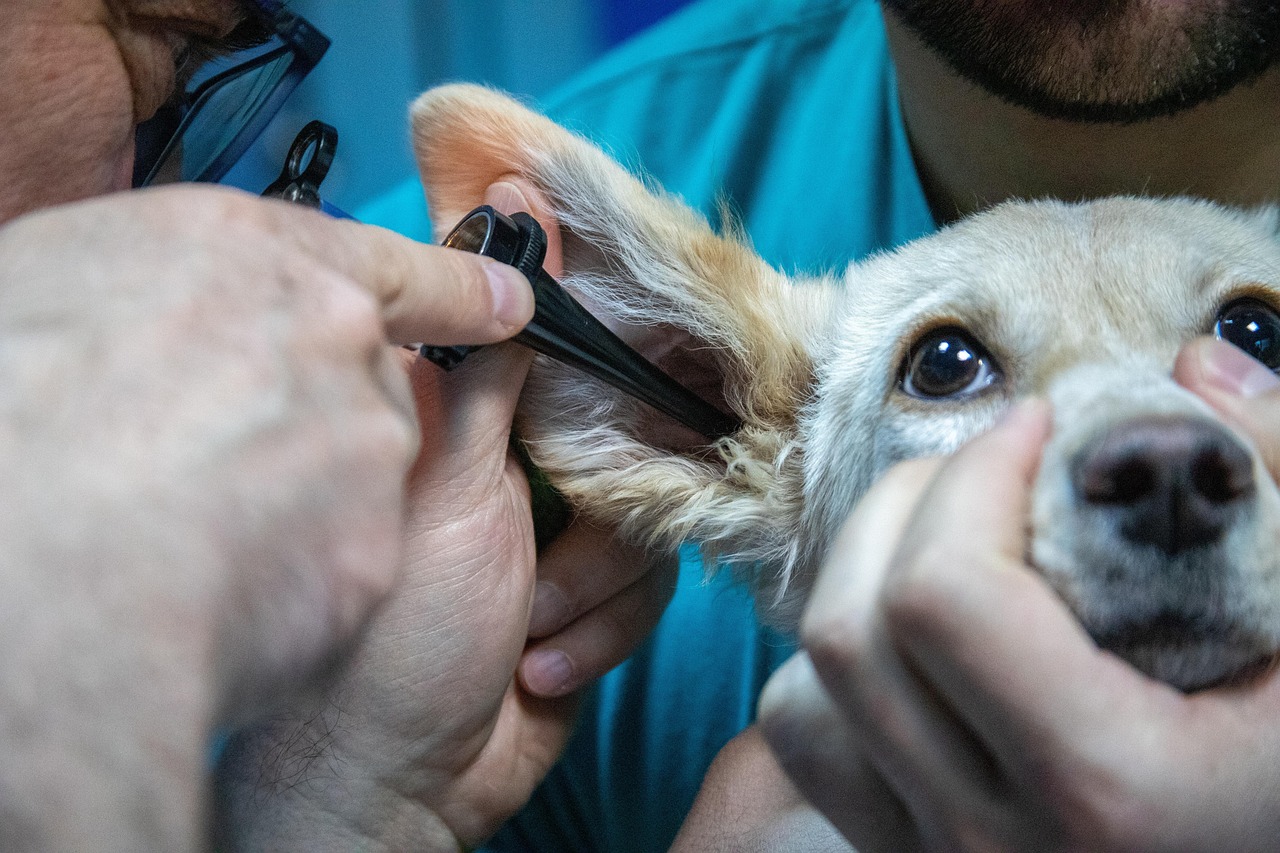Weimaraner
Published on June 22, 2011
Breed Details
- Height: 23 to 27 inches at the shoulder
- Weight: 55 to 90 pounds
Breed Characteristics
Adaptability
Trainability
Grooming
Apartament Friendly
Child Friendly
Shedding Level
Dog Friendly
Exercise Needs
Territorial
Barking Tendencies
Health Issues
Social Needs
Energy Level
Affectionate
Watchdog Instincts
Cat Friendly
Intelligence
Stranger Friendly
Nicknamed the Gray Ghost for his habit of shadowing his owner, the smart and highly energetic Weimaraner is a great family companion, as well as a skilled hunting dog whose ancestors were bred to hone in on deer, wolves, and even bears. Plus, his sleek, silvery coat is easy to groom.
You may not know his name, but you probably recognize his silvery gray snout and long ears, a face made famous by Weimaraner photographer William Wegman. His distinctive look aside, the Weimaraner isn’t an ornament — he’s an active dog, with a deep need to hunt and connect with his human family.
In fact, there are two things a prospective owner needs to know about the Weimaraner: He has no “off” switch, and he’s not happy when left alone. Bred in Germany as a hunting dog and a family companion, the Weimaraner would love nothing more than to spend the day hunting with you — all day long, every single day. Failing that, he’ll settle for obedience training, agility, hiking, or participating in canine sports, just as long as it means that he can be active with you.
If you’re getting the idea that Weimaraners tend to attach to their owners like Velcro, you’re right. Separation anxiety is a serious problem in this breed; some Weimaraners become so distraught when left to their own devices that they bark, dig, escape, and even injure themselves. They can also be stubborn, demanding, and tough to house-train. They’re frequently a hazard to cats and other small pets, and if they don’t get a lot of daily exercise, they go stir crazy.
So why even have one? The answer is simple: They’re incredibly intelligent, loyal dogs who bond deeply with their owners. For some people, the depth of that relationship, coupled with the unique appearance of the breed, makes them the only dog to consider. To see if the Weimaraner is the right breed for you, take the Weimaraner Club of America’s interactive quiz.
Other Quick Facts
- Weimaraners aren’t suited to apartment life — they need a home with a yard and an owner who won’t scold them for digging up moles and mice.
- The Weimaraner’s beautiful coat is a snap to maintain, but it sheds.
- Weimaraners love to play in the water, and they drip copious amounts it when they drink.
- They are talented escape artists who excel at breaking out of enclosures, jumping fences, and figuring out how to unlatch doors and gates.
- The Weimaraner has a mind of his own, so he needs consistent training throughout his life to reinforce that you’re the one in charge.
- Females weigh between 55 to 70 pounds, while males can weigh in at 85 pounds.
The History of Weimaraners
Members of Germany’s Weimar court created the breed in the early 19th century. They wanted a dog who possessed courage, intelligence, and good scenting abilities in order to hunt big game. It remains a mystery just how they achieved their dream dog, but it’s believed that several breeds played a role, including the Bloodhound, English Pointer, German Shorthaired Pointer, blue Great Dane, the silver-gray chicken dog, and the red Schweisshunde, a stellar scent hound. The result was a dog with speed, stamina, and the versatility to switch gears from hunting to pointing and retrieving upland game birds and waterfowl when big game was scarce.
The American Kennel Club recognized the breed in 1943. In Germany, the Weimaraner is still used to hunt furry and feathered prey, as well as retrieve on land and in the water. In the United States, he doesn’t compete in retrieving trials, although he is used as a personal hunting dog. His popularity is evidenced by his AKC registration ranking, which has held steady at 32nd for the past decade, with a slight rise to 29th in 2005.
All featured products are chosen at the discretion of the Vetstreet editorial team and do not reflect a direct endorsement by the author. However, Vetstreet may make a small affiliate commission if you click through and make a purchase.
Weimaraner Temperament and Personality
Weimaraners are devoted dogs who want to be with people all of the time, which can be unnerving. But if you enjoy always having a dog by your side — and can spare plenty of time for hiking, jogging, or hunting — the Weimaraner can be an ideal canine sidekick.
His personality can range from in-charge to laidback. Males tend to be sweet, while females have more spunk. Puppies with more prey drive and independence do well in the field, while those who are easygoing and upbeat are best suited for companion homes. If you’re hoping to show, opt for puppies with outgoing and confident attitudes. And if you pick up a puppy and he doesn’t settle down in your arms quickly, it’s a clue that he’s going to be highly energetic — the same is true if he bosses the other puppies — so think long and hard about whether he’s the right kind of dog for you. For most of us, the best choice is the nice, middle-of-the-road puppy who is neither too bossy nor too shy.
Fortunately, Weimaraners are sensitive, smart, and aim to please, which gives you a head start with training, especially if you start early. A young Weimaraner will test you to see how much he can get away with, so try to get him into puppy kindergarten class by the time he is 10 to 12 weeks old, and socialize, socialize, socialize. However, be aware that many puppy training classes require certain vaccines (like kennel cough) to be up to date, and many veterinarians recommend limited exposure to other dogs and public places until puppy vaccines (including rabies, distemper and parvovirus) have been completed. In lieu of formal training, you can begin training your puppy at home and socializing him among family and friends until puppy vaccines are completed.
As lovable as he is, the Weimaraner can be high-maintenance. He needs lots of social interaction and reassurance to establish that confident, devoted Weimaraner attitude. He’ll also introduce you to two fundamental laws of nature: A Weimaraner at rest is bored and a bored Weimaraner is destructive. So plan to keep him busy or he’ll put his own plan into action — like noshing on rugs and walls — and you probably won’t like it.
Weimaraners enjoy running, hunting, going for walks, boating, swimming — essentially anything, as long as it involves being with you. (Tip: These dogs live to chase any object that moves, including runners, bikers, kids, and other animals, so confine him to a safely fenced yard and always walk him on leash.) When it comes to dog sports, they love agility, tracking, and hunt tests. In fact, be prepared for gifts of dead things: frogs, birds, the nice cat that’s been hanging around the yard. Your Weimaraner doesn’t know that she’s your neighbor’s cat; he’s primed to hunt furry things and that’s what he does. And never reject his gifts or punish him, which could severely damage your relationship.
A Weimaraner loves you and wants to please you, but he’s also an independent thinker who likes to have his own way. He’ll be pushy and challenging — and not just during adolescence. In the case of the Weimaraner, the “teen” years can start at six months and continue until the dog is about two years old. Training a Weimaraner calls for sensitivity, firmness with a light touch, and a superb sense of humor. It takes a very smart person to stay one step ahead of a Weimaraner, and even then, there’s still plenty of room to be outwitted by one of these dogs.
What You Need to Know About Weimaraner Health
All dogs have the potential to develop genetic health problems, so it’s important to choose your breeder wisely. Weimaraner breeders should know about several conditions, including hip dysplasia, hypothyroidism, tricuspid dysplasia (a congenital heart disease), and eye problems like corneal dystropy and entropion.
A small percentage of Weimaraner puppies can develop an autoimmune reaction following vaccination. It usually manifests as a condition called hypertrophic osteodystrophy, a painful condition that can affect the bones.To help prevent such reactions, breeders recommend giving each vaccination separately, rather than all on the same day. The Weimaraner Club of America (WCA) does not recommend giving vaccines for coronavirus, leptospirosis, Bordetella, and Lyme disease, unless the diseases are prevalent in your locale. Ask your veterinarian if your dog should be vaccinated against any of these diseases.
Weimaraners can also have elevated levels of uric acid in their urine, predisposing them to form painful bladder and kidney stones, which may require surgery. This condition, known as hyperuricosuria, is inherited. A DNA test for the condition is available from the University of California at Davis Veterinary Genetics Laboratory.
Not all of these conditions are detectable in a growing puppy, and it can be hard to predict whether an animal will be free of these maladies, which is why you must find a reputable breeder who is committed to breeding the healthiest animals possible. They should be able to produce independent certification that the parents of the dog (and grandparents, etc.) have been screened for these defects and deemed healthy for breeding. That’s where health registries come in.
The Weimaraner Club of America participates in the Canine Health Information Center (CHIC), a health database. Breeders must agree to have all test results, positive or negative, published in the database, which can be accessed by anyone who wants to check the health of a puppy’s parents.
Before Weimaraners can be issued a CHIC number, breeders must submit hip and thyroid evaluations from the Orthopedic Foundation for Animals (OFA) and eye test results from the Canine Eye Registration Foundation (CERF). PennHip certification of hips is also accepted. Another optional test that’s recommended: a DNA screening for hyperuricosuria from the University of California at Davis Veterinary Genetics Lab. To be safe, many breeders also test hearts and elbows.
The addition of a probiotic such as Great Poop can help promote a healthy gut in your Weimaraner. Each chew contains no soy, corn, wheat, or artificial colors or flavors, so pet parents can feel confident dispensing these chewables each day. The fiber in each chew helps keep poops firm, too, which is a win-win for everyone.
When it comes to Weimaraners, not every trip to the veterinarian involves a genetic problem. It’s not uncommon for them to sustain hunting injuries, such as a broken leg caused by stepping in a hole. They’re also apt to require surgery for the removal of USOs — unidentified swallowed objects. In a puppy, growth continues until he’s more than a year old, so don’t let him jump or run on hard surfaces, such as concrete or asphalt, until his growth plates close when he’s 14 to 18 months old. Otherwise, this kind of activity can stress his growing bones and joints.
After you’ve taken a new puppy home, you have the power to protect him from one of the most common health problems: obesity. If you allow a puppy to get fat, this can stress his hips and knees — and shorten his life span.
The Basics of Weimaraner Grooming
The Weimaraner’s short coat is easy to maintain: Brush it with a rubber curry brush at least once a week. The brush removes dead hairs that would otherwise end up on your floor, furniture, and clothing. Weimaraners shed, so the more you brush, the less hair you’ll have flying around. And bathe your Weimaraner only when he’s dirty, which shouldn’t be very often.
The Weimaraner is a hunting dog, so good foot condition is important. Keep his toenails trimmed short. Last but not least, brush his teeth with a vet-approved pet toothpaste for good overall health and fresh breath.
Choosing a Weimaraner Breeder
Selecting a respected breeder is a great way to find the right puppy. Reputable breeders will welcome questions about temperament and health clearances, as well as explain the history of the breed and what kind of puppy makes for a good pet. Don’t be shy about describing exactly what you’re looking for in a dog — breeders interact with their puppies daily and can make accurate recommendations once they know something about your lifestyle and personality.
To start your search, check out the website of the Weimaraner Club of America (WCA), which offers resources for finding a good breeder. Select a breeder that has agreed to abide by the club’s code of ethics, specifying that members not place puppies prior to 12 weeks of age, prohibits the sale of puppies through pet stores, and calls for the breeder to obtain recommended health clearances before breeding.
Lots of breeders have websites, so how can you tell who’s good and who’s not? Red flags to look out for: multiple litters on the premises, puppies always being available, having your choice of any puppy, and being offered the option to pay online with a credit card. Breeders who sell puppies at a lower price “without papers” are unethical and should be reported to the American Kennel Club. You should also bear in mind that buying a puppy from a website that offers to ship the dog immediately can be a risky venture — it leaves you no recourse if what you get isn’t exactly what you expected.
Whether you’re planning to get your new best friend from a breeder, a pet store, or another source, don’t forget that old adage “let the buyer beware”. Disreputable breeders and facilities that deal with puppy mills can be hard to distinguish from reliable operations. There’s no 100% guaranteed way to make sure you’ll never purchase a sick puppy, but researching the breed (so you know what to expect), checking out the facility (to identify unhealthy conditions or sick animals), and asking the right questions can reduce the chances of heading into a disastrous situation. And don’t forget to ask your veterinarian, who can often refer you to a reputable breeder, breed rescue organization, or other reliable source for healthy puppies.
The cost of a Weimaraner puppy varies depending on the breeder’s locale, the sex of the puppy, the titles that the puppy’s parents have, and whether the puppy is best suited for the show ring or a pet home. Puppies should be temperament tested, vetted, dewormed, and socialized to give them a healthy, confident start in life.While most Weimaraners have good dispositions, a breeder who has American Temperament Test Society (TT) certification on her dogs is preferable. If you put as much effort into researching your puppy as you would when buying a new car, it will save you money in the long run.
Before you decide to buy a puppy, consider whether an adult Weimaraner may better suit your lifestyle. Puppies are loads of fun, but they require a good deal of time and effort before they grow up to be the dog of your dreams. An adult may already have some training, and he’ll probably be less active, destructive, and demanding than a puppy. With an adult, you know more about what you’re getting in terms of personality and health and you can find adults through breeders or shelters. If you are interested in acquiring an older dog through breeders, ask them about purchasing a retired show dog or if they know of an adult dog who needs a new home. If you want to adopt a dog, read the advice below on how to do that.
Adopting a Dog From a Weimaraner Rescue or Shelter
There are many great options available if you want to adopt a dog from an animal shelter or breed rescue organization. Here is how to get started.
1. Use the Web
Sites like Petfinder.com and Adopt-a-Pet.com can have you searching for a Weimaraner in your area in no time flat. The site allows you to be very specific in your requests (housetraining status, for example) or very general (all the Weimaraners available on Petfinder across the country). AnimalShelter.org can help you find animal rescue groups in your area. Also some local newspapers have “pets looking for homes” sections you can review.
Social media is another great way to find a dog. Post on your Facebook page that you are looking for a specific breed so that your entire community can be your eyes and ears.
2. Reach Out to Local Experts
Start talking with all the pet pros in your area about your desire for a Weimaraner. That includes vets, dog walkers, and groomers. When someone has to make the tough decision to give up a dog, that person will often ask her own trusted network for recommendations.
3. Talk to Breed Rescue
Most people who love Weimaraners love all Weimaraners. That’s why breed clubs have rescue organizations devoted to taking care of homeless dogs. The Weimaraner Club of America’s rescue network can help you find a dog that may be the perfect companion for your family. You can also search online for other Weimaraner rescues in your area.
The great thing about breed rescue groups is that they tend to be very upfront about any health conditions the dogs may have and are a valuable resource for advice. They also often offer fostering opportunities so, with training, you could bring a Weimaraner home with you to see what the experience is like.
4. Key Questions to Ask
You now know the things to discuss with a breeder, but there are also questions you should discuss with shelter or rescue group staff or volunteers before you bring home a dog. These include:
What is his energy level?
How is he around other animals?
How does he respond to shelter workers, visitors, and children?
What is his personality like?
What is his age?
Is he housetrained?
Has he ever bitten or hurt anyone that they know of?
Are there any known health issues?
Wherever you acquire your Weimaraner, make sure you have a good contract with the seller, shelter or rescue group that spells out responsibilities on both sides. Petfinder offers an Adopters Bill of Rights that helps you understand what you can consider normal and appropriate when you get a dog from a shelter. In states with “puppy lemon laws,” be sure you and the person you get the dog from both understand your rights and recourses.
Puppy or adult, take your Weimaraner to your veterinarian soon after adoption. Your veterinarian will be able to spot problems, and will work with you to set up a preventive regimen that will help you avoid many health issues.













